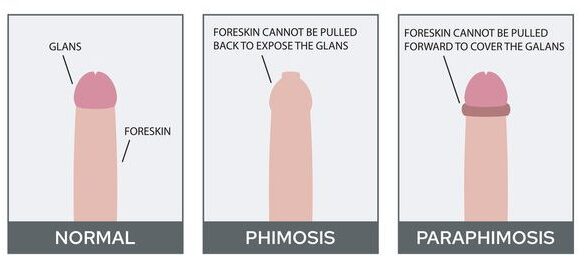Foreskin Infection or Penis Infection is an uncomfortable penile disorder that is categorized by inflammation of the foreskin or prepuce of the penis. This condition affects uncircumcised men and can be quite discomforting. At HeptaCare Health, we provide comprehensive medical and surgical management for Posthitis through discreet consultation to help men seek respite from this discomforting condition. Let us learn more about foreskin infection or posthitis.
Happy Patients
Disease
Hospitals
Cities
As the name suggests, foreskin infection or penis infection is a bacterial or fungal infection that causes inflammation of the penis foreskin. This condition generally isn’t a cause of concern for men. However, in some cases, it can cause significant discomfort and require treatment.
This condition generally occurs along with balanitis (inflammation of the head of the penis). Posthitis isn’t an STD (Sexually Transmitted Disease); therefore, it isn’t very dangerous. However, leaving it untreated for too long can cause the condition to aggravate and may also worsen your symptoms.
Foreskin infection or Penis Infection can affect anyone at any given point in time. The condition can cause serious discomfort if it’s not treated in time. In general, it affects uncircumcised men and may occur due to several factors, including:
Posthitis is also common in men who are suffering from phimosis. Those who do not clean their foreskin regularly or have sensitivity under their foreskin are also at an increased risk of developing foreskin infection. Apart from this, rubbing the foreskin vigorously also puts you at risk of developing this condition.

Posthitis can be diagnosed conveniently through a physical examination. Doctors generally perform a physical examination of the condition and ask patients about the symptoms they’re experiencing and their medical history. Sometimes, a doctor may ask the patient to get a swab test. This test helps determine the cause of the inflammation and plan the treatment accordingly. In a few cases, the doctor might also suggest urine, which also helps them understand the cause of the condition and rule out diabetes.
Posthitis generally vanishes within a week without medical management. However, seeking treatment for this condition becomes important if:
The only surgery available for posthitis is circumcision i.e., the procedure was performed to remove the foreskin completely. While the purpose of circumcision is removing the foreskin, it can be done through different procedures. Circumcision is usually performed by the following methods- laser circumcision, stapler circumcision, and conventional circumcision. The most commonly performed circumcision procedures are as follows:
To recover quickly after circumcision surgery, patients are required to take some precautions. Your doctor would suggest some precautions and lifestyle modifications that would help you keep complications at bay. Here are some tips that will help you recover quickly after circumcision surgery:
If you’re about to undergo a circumcision surgery, you can rest assured about the safety and success rate of the procedure. All circumcision procedures are generally quite safe and also used for candida balanitis, phimosis surgery (tight foreskin treatment) , paraphimosis treatment, and balanoposthitis surgery. However, you must be aware of the possible risks and complications associated with this surgery. Find below the complications of circumcision surgery:
At HeptaCare Health we treat various foreskin issues by laser circumcision, stapler circumcision and frenuloplasty surgery.
Insurance generally covers medically necessary treatments. In severe cases of Foreskin Infection or posthitis, circumcision surgery is recommended and therefore it’s considered medically necessary. Circumcision surgery at HeptaCare Health is covered under insurance, and we have a dedicated insurance team in place to help you with the insurance claim process. You can get in touch with our medical coordinators to learn more about insurance coverage for circumcision surgery.


Based on 7721 Recommendations | Rated 4.68 Out of 5
Happy Patients
Clinics
Cities
Surgeries
Doctors
Hospitals
Getting an accurate diagnosis can be one of the most impactful experiences that you can have.

cure with care
Copyright © 2025. All rights reserved.
Consult with our expert surgeon for more than 50+ diseases
Happy Patients
Hospitals
Cities